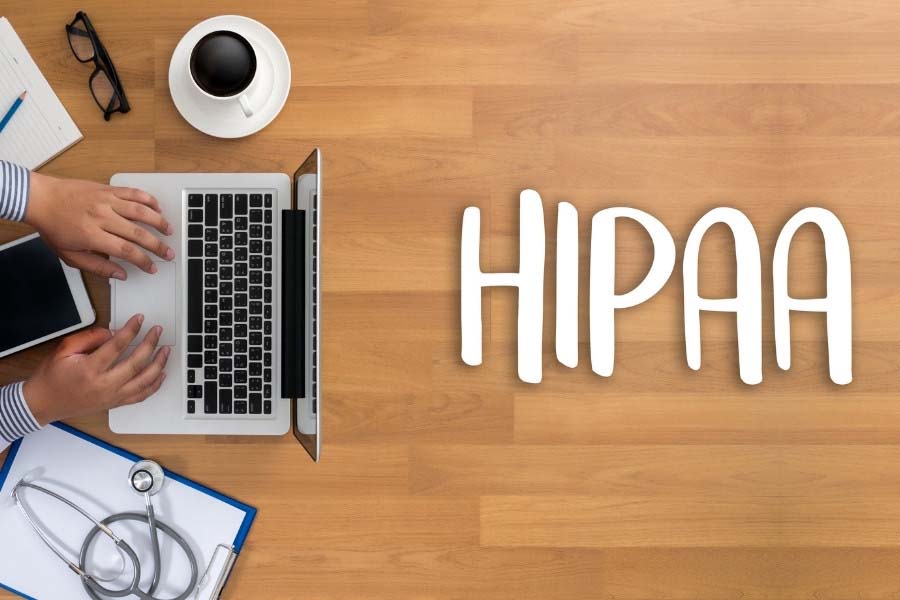The development of technology has impacted all aspects of our lives, improving the efficiency and effectiveness of industries in all sectors. Advances in medical technology have led to exponential growth in the healthcare industry. As a result of paperless practices, hospitals, doctors, clinics, and pharmacies have become more efficient. As healthcare professionals become more comfortable with the use of electronic payment systems, questionnaires, and other methods, they are able to gain easier access to patients' records and to see more patients. Therefore, HHS and OCR lacked a universally accepted standard for privacy and security before the implementation of the Health Insurance Portability and Accountability Act (HIPAA). It is crucial for any healthcare organization to have a comprehensive understanding of HIPAA regulations while implementing their revenue cycle management strategies. Information must be protected at all stages of care (paper, oral, and electronic). As well as protecting organizations from costly security breaches, lawsuits, and penalties for violations, HIPAA regulations protect patients' privacy rights as well. Cybersecurity threats are growing as electronic records are maintained, digital data is transferred, and cloud services are ubiquitous. To minimize vulnerabilities and limit the impact of breaches, HIPAA compliance is essential. A HIPAA compliance requirement applies to two types of organizations. The HIPAA regulations define covered entities as any organizations that collect, create, or transmit protected health information electronically. Various types of health care organizations exist, including health care providers, health care clearinghouses, and health insurance companies. Business associates are defined in HIPAA regulations as any organization that receives protected health information (PHI) while performing work for a covered entity.Your role as a business associate may involve handling, transmitting, or processing personal health information. Other companies impacted include medical billing services, practice managers, , EHR platforms, MSPs, IT providers, third-party consultants, fax and shredding services, cloud storage providers, email hosting providers, attorneys and accountants. To comply with HIPAA, it is imperative to combine internal processes with sophisticated technology, as well as to engage in targeted partnerships with external parties. Before diving into the specifics of HIPAA compliance, please refer to the following general strategy. Developing a cybersecurity policy, procedure, and standard is the first step towards establishing a successful cybersecurity program. Comply with HIPAA in terms of administrative procedures and systems, as well as training your employees. Document your policy and distribute it widely within your organization. HIPAA compliance requires both a physical and a digital safeguard for protected health information (PHI). Personal health information should be stored in a physical environment that is accessible only to authorized personnel. Be sure to use strong passwords and take precautions when logging in. Each covered entity should conduct a HIPAA risk assessment on an annual basis. As a result, if you have not started this process for 2023, now is the time to do so. An audit of HIPAA compliance risk has to include a review of all security measures that have been implemented by the organization on an administrative, physical, and technical level. HIPAA compliance would be maintained every day of the year, if everything were perfect. Nevertheless, there are times when lapses occur, regardless of whether you discover them, an auditor discovers them, or a regulator discovers them. To prevent recurrence, identifying violations, conducting root cause analysis, and remediating them as soon as possible are essential. When you keep these four principles in mind, you will be able to maintain compliance with HIPAA most efficiently. In accordance with HIPAA, all covered entities and business associates must have a compliance program that includes the following seven elements. 1. ensure Policies, Procedures, And Conduct Standards Are Documented. Organizations should take the first step in establishing written standards for all employees. It is imperative that these policies include a disaster recovery plan and a code of ethics, as well as training and a compliance program. 2. Establishing A Compliance Officer And A Compliance Committee In Accordance With HIPAA. Each covered entity and business associate will appoint a compliance officer to serve on the committee. 3. Effective Training and Education. It is mandatory that companies undergo HIPAA compliance training in order to maintain a high degree of competence regarding the safeguarding of personal information. 4. Communication Should be Open and Honest. Compliance officers should be able to report violations of HIPAA compliance to them without fear of retaliation. 5. Monitoring and auditing of Internal Processes. In order to ensure that any program is performing as intended, it must be capable of continuously analyzing its performance. 6. Enforcing Policy Through Well-Publicized Disciplinary Guidelines. As required by HIPAA, all covered entities and business associates must have a compliance program that consists of the following seven elements. 7. Document Your Policies, Procedures, And Conduct Standards In A Comprehensive Manner. In order to ensure that all employees are following written standards, companies should take the first step to do so. During an OCR investigation related to a HIPAA violation, auditors will examine the organization's policies against these elements. You may follow the same principles as in previous years when completing your HIPAA compliance checklist for 2022.Cyber threats should be countered by the implementation of technology and internal policies that govern the handling of personal health information. The best way to ensure and maintain HIPAA compliance in the foreseeable future is to be on the lookout for any changes to HIPAA related to COVID as well as to utilize healthcare cybersecurity best practices in collaboration with your compliance partner. Advanced healthcare solutions have revolutionized patient care by streamlining processes, improving accuracy, and enhancing data access.Why Is HIPAA Compliance Important?
HIPAA Compliance - Who Needs It?
Covered Entities:
Business Associates:
Compliance with HIPAA: How to get there
Develop Policies:
Implement Safeguards:
Risk Assessments:
Investigate Violations:
How to Create a HIPAA Compliance Program
Closing Thoughts
Blog Details
- Home
- Blog Details
